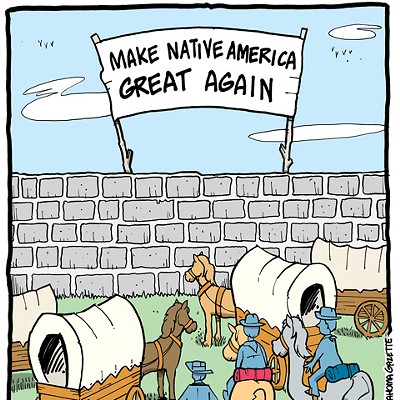On Feb. 4, 2008, the Oklahoma Legislature will convene its second session. The first thing the Legislature should do immediately is assemble a concurrent special session and take up ethics reform.
The problems confronting our state in the area of campaign finance increasingly are capturing the attention of the news media and do not bear repeating here. But, in the realm of campaign finance, proof of corruption is not necessary to break the law or to allow regulation of political money. The Supreme Court routinely has held, across party and ideology, that the state has a compelling interest to regulate money if corruption or the appearance of corruption taints elections.
Such a taint exists in Oklahoma.
It transcends party and institution. It must change.
Republican Rep. David Dank has moved in the wake of events surrounding questionable Republican fund-raising and campaign finance management to propose "The Oklahoma Clean Campaign Act of 2008." This measure would move to curtail the scope of donor activity in terms of the amount of money to be given by a lobbyist or family. The proposed act also narrows the time frame in which candidates might receive campaign donations by banning donations from 15 days before a legislative session to 15 days after.
The proposed act also would require more stringent reporting practices on how campaign money is spent. The purpose is twofold: first, to limit abuses of campaign money being spent for non-campaign purposes; second, to knock the vagueness out of the reporting requirements, which render existing reports almost useless for understanding how money is used.
The only flaw in the Dank act is in the donation limits. Dank would curtail lobbyist or family donations, in total, to $40,000 per cycle. While the rationale is clear " to avoid concentrations of wealth from having undue influence over candidates " the practical effect is to render that part of the law unconstitutional.
Money in politics, in the view of the Supreme Court, is considered to be speech, and therefore protected by the First Amendment. It is permissible to limit contributions to individual candidates by lobbyists, committees or individual donors. However, placing total caps on the contributions to all candidates by individual donors potentially runs afoul of the First Amendment, especially if severe donation limits prevent challengers from mounting effective campaigns.
The basic problems in campaign finance are not fixed by limiting money in politics, but instead by ensuring that the process is transparent. People don't trust what they can't see, especially when it comes to slick politicians with complex explanations for why they did something that looks wrong. Justice Warren Burger, writing in dissent in the case that governs campaign finance in the United States, Buckley v. Valeo, observed that "disclosure is, in principle, the salutary and constitutional remedy for most of the ills (of money in politics)."
Put another way: Are you doing things with your campaign money that your momma wouldn't approve? Disclosure works.
The balance of the Dank proposal I heartily endorse. Any effort to clean up the messy practices of committee-to-committee transfers, excess fund reallocations, and cross-campaign transfers of money that allow candidates to move money from one campaign committee to another with impunity and little oversight is most welcome.
Gaddie is professor of political science at the University of Oklahoma and president of the Southwestern Political Science Association.












